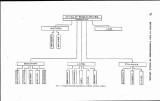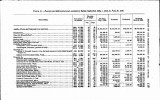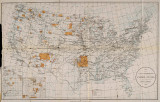| Title |
Annual Report of the Commissioner of Indian Affairs - 1909 |
| Subject |
Indian reservations; Federal government; Indians of North America; Maps; Work; Land use; Allotment of land; Treaties; Agriculture; Timber; Health; Indians of North America--Social life and customs; Water rights; Natural resources; Education; Indians of North America--Education; Employment (Economic theory); Railroads; Livestock; Alcohol; Courts; Annuities; Grazing; Irrigation; Indigenous peoples--North America |
| Keywords |
Annual Report; Indian Agency; Reservations; Resources; Tribal Funds; Allotment; Mining; Native Americans |
| Publisher |
Digitized by J. Willard Marriott Library, University of Utah |
| Tribe |
Ute; Paiute; Navajo |
| Language |
eng |
| Description |
Excerpts concerning Utah from the Annual Report of the Commissioner of Indian Affairs - Courtesy of the University of Wisconsin Digital Collections. Commissioner Valentine discusses the spread of communicable diseases and methods of prevention, the employment of American Indians in office of the Bureau of Indian Affairs, the progression of farming, the suppression of alcohol consumption, the distribution of allotments, and the development and maintenance of Indian schools. Valentine mentions a group of Utes who left their reservation in Utah and fled to South Dakota where they began working for the railroad. The Commissioner also describes irrigation efforts on the Uintah Reservation |
| Type |
Text |
| Coverage |
Uintah and Ouray Indian Reservation (Utah); Utah; Washington (D.C.) |
| Format |
application/pdf |
| Rights |
Digital Image © 2011 America West Center. All Rights Reserved |
| ARK |
ark:/87278/s6cc3wd0 |
| Creator |
Commissioner of Indian Affairs; Valentine, Robert G. (Robert Grosvenor), 1872-1916 |
| Date |
1909 |
| Spatial Coverage |
Uintah and Ouray Indian Reservation (Utah); Washington (D.C.); Utah |
| Setname |
uaida_main |
| ID |
377864 |
| Reference URL |
https://collections.lib.utah.edu/ark:/87278/s6cc3wd0 |









































































































































































